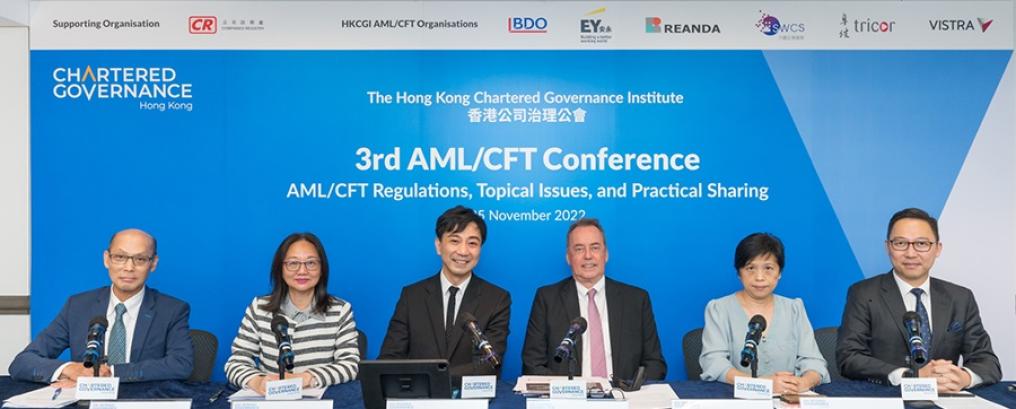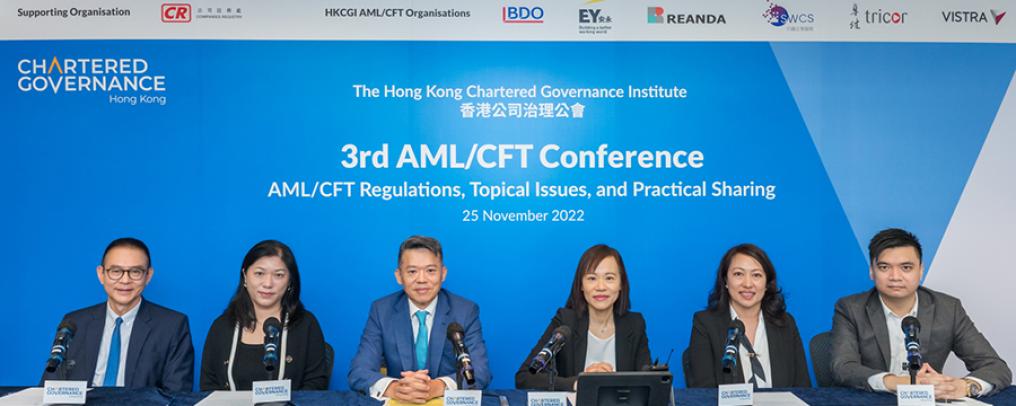
When do Hong Kong directors owe a duty to consider creditors’ interests?
Roderick Lai, Mark Hughes and Katrina Shum of Eversheds Sutherland, examine a recent UK Supreme Court judgment, which confirms the test for when directors owe a duty to consider creditors’ interests. This test is likely to apply to directors of Hong Kong companies.
On 5 October 2022, the UK Supreme Court handed down its long-awaited judgment in BTI 2014 LLC v Sequana SA and others [2022] UKSC 25 (BTI v Sequana), which confirmed that a director’s fiduciary duty to act in the interests of the company in good faith may be modified to require the director to consider or act in the interests of the company’s creditors (creditor duty) when the director knows, or ought to know, that an insolvent liquidation or administration of the company is probable.
This is a key decision providing much welcome clarity in respect of directors’ duties under English law. Directors of Hong Kong companies, in particular if at any time those companies are facing financial difficulties, should take careful note because it is highly likely that the Hong Kong courts would follow the English decision.
The factual background in BTI v Sequana
The facts of BTI v Sequana concerned certain dividends paid to Sequana S.A. (Sequana) by its subsidiary at a time when the subsidiary was solvent, but was facing a real risk that it might become insolvent at an uncertain but not imminent date in the future. Almost 10 years after the dividend was distributed, the subsidiary went into insolvent administration.
A claim was brought against Sequana (and others) that the dividends ought not to have been paid to it. The argument was that the payment of the dividends left insufficient funds in the subsidiary to satisfy a contingent liability arising from an indemnity for clean-up costs in respect of pollution, thereby prejudicing the interests of a creditor, the beneficiary of the indemnity.
Supreme Court confirms existence of creditor duty
The Supreme Court considered whether there is a point in time at which a creditor duty arises and, if so, when. In doing so, the Supreme Court noted that section 172(1) of the UK’s Companies Act 2006 (CA 2006) sets out the director’s general duty to promote the success of the company for the benefit of its members. This duty is expressly subject to the following qualification contained in section 172(3): ‘The duty imposed by this section has effect subject to any enactment or rule of law requiring directors, in certain circumstances, to consider or act in the interests of creditors of the company.’
In light of this specific qualification, as well as a long line of case law supporting the existence of a creditor duty, the Supreme Court held that the general duty to act in the interests of the company set out in section 172(1) of CA 2006 can be modified such that the company’s interests are extended to encompass the interests of the general body of creditors, as well as the general body of shareholders.
The duty, as modified, therefore requires the directors to consider the interests of creditors along with those of members. The weight to be given to creditors’ interests, insofar as they may conflict with those of the members, will increase as the company’s financial problems become increasingly serious. Where insolvent liquidation or administration is inevitable, the interests of the members cease to bear any weight, and the rule consequently requires the company’s interests to be treated as equivalent to the interests of its creditors as a whole.
When does the creditor duty arise?
As to the question of when the creditor duty arises, the Supreme Court was, unsurprisingly, unanimous in confirming that the creditor duty arises when the company is insolvent. However, as to when the creditor duty may be triggered before a company becomes insolvent, different opinions were expressed by the members of the Supreme Court.
The majority held that the creditor duty is engaged in the following circumstances:
- when a company is insolvent, bordering on insolvency, or where an insolvent liquidation is probable but not inevitable, directors should be careful to consider and balance the interests of creditors as a whole against the shareholders’ interests, and
- when the directors know, or ought to know, that an insolvent liquidation is inevitable, creditors’ interests will take precedence over shareholders’ interests.
The rationale is that the creditors become the main stakeholders in the company when (but only when) it goes into insolvent liquidation. It is that prospective entitlement that entitles the creditors to have their interests considered. Therefore, for the purpose of triggering the creditor duty, it is not enough to simply show that there is a real risk of insolvency, as even that is too remote to infer that a company will go into insolvent liquidation.
Does the creditor duty apply to Hong Kong directors?
Lack of codification of fiduciary duties under the Hong Kong Companies Ordinance
As noted above, in handing down the ruling in BTI v Sequana, the Supreme Court recognised that the director’s fiduciary duty to promote the success of the company for the benefit of its members has been codified in the UK’s CA 2006.
In contrast, only a director’s duties of care, skill and diligence have been codified under the Hong Kong Companies Ordinance. Directors’ other duties remain fiduciary duties as defined in common law, including the duties to act in good faith in the interests of the company, exercise powers for their proper purpose, and avoid conflicts of duty and interest. There is therefore no express provision in Hong Kong statute requiring directors to take into account the interests of creditors in the exercise of their fiduciary (or statutory) duties.
Creditor duty in Hong Kong common law
Notwithstanding the lack of an express legislative carve-in requiring directors to consider or act in the interests of creditors of a Hong Kong company, the creditor duty identified in BTI v Sequana is in fact a modification of an equivalent fiduciary duty long established in Hong Kong. Lord Reed, in his judgment in BTI v Sequana, made express reference to a Hong Kong Court of Final Appeal (CFA) case, Moulin Global Eyecare Holdings Ltd v Lee Sin Mei [2014] HKCFA 63 (Moulin Global), which confirmed the existence of a duty to consider creditor interests in Hong Kong.
The proceedings in Moulin Global concerned the acts of a former director of Moulin Global Eyecare Holdings Ltd (Moulin), who had caused certain losses of the company through distribution of dividends and payment for early redemption of convertible notes at a time when the company was insolvent, and payment for a share repurchase out of capital. Almost six years after the director ceased to be a director of Moulin, Moulin sought to recover payments from the director in an Amended Statement of Claim.
The director sought to strike out the Amended Statement of Claim, and one of the issues that the CFA had to resolve in the context of that application was whether a company would have any remedy against a director acting in breach of their fiduciary duty for sums paid away to one creditor at the expense of the other creditors, at a time when the company was already insolvent. The position in the lower courts (that is the Court of Appeal) was that when the company became insolvent, its directors owed a duty to have regard to the interests of creditors – and the CFA accepted that a case framed consistently with this proposition would be reasonably arguable.
Against this backdrop, the decision in BTI v Sequana is significant and remains likely to be treated by the Hong Kong courts as highly persuasive towards establishing under Hong Kong law that (i) a creditor duty exists in common law, and (ii) assuming such a duty exists, the creditor duty will arise prior to insolvency itself.
What does this mean for directors and company secretaries of Hong Kong companies?
While we are yet to see further judicial guidance on what exactly would constitute taking creditors’ interests into account, directors and company secretaries of Hong Kong businesses (and in particular, potentially distressed businesses) are advised to maintain good corporate governance. This is particularly important, as even shareholders’ ratification of a director’s decision will not alleviate her/his liability once the creditor duty is engaged. In normal circumstances, the shareholders of a company can by acting unanimously waive or ratify a breach of duty by the directors. However, as pointed out by Lord Briggs’s judgment in BTI v Sequana, a recognised qualification to this principle is that a transaction must not jeopardise the company’s solvency or cause loss to its creditors, and shareholders cannot ratify acts of directors committed in breach of the creditor duty.
In light of the potentially significant consequences for directors in breach of the creditor duty, we recommend directors and company secretaries to:
- carefully consider the rationale and consequences of material transactions (for example decisions relating to the lawful distribution of dividends, and mergers and acquisitions transactions), and ensure that the decision-making process for all material decisions is properly recorded and documented, and
- consider engaging professional advice when the company faces financial difficulty, which may help the company avoid an insolvency situation, but failing that, since there is statutory relief for directors who have acted honestly and reasonably in the circumstances, evidence of reliance upon independent advice could be an important mitigant for the director in the event of subsequent litigation.
Roderick Lai, Partner, Corporate M&A; Mark Hughes, Partner, Litigation & Dispute Management; Katrina Shum, Legal Manager, Corporate M&A
Eversheds Sutherland
The authors can be contacted via the firm’s website: www.eversheds-sutherland.com.


